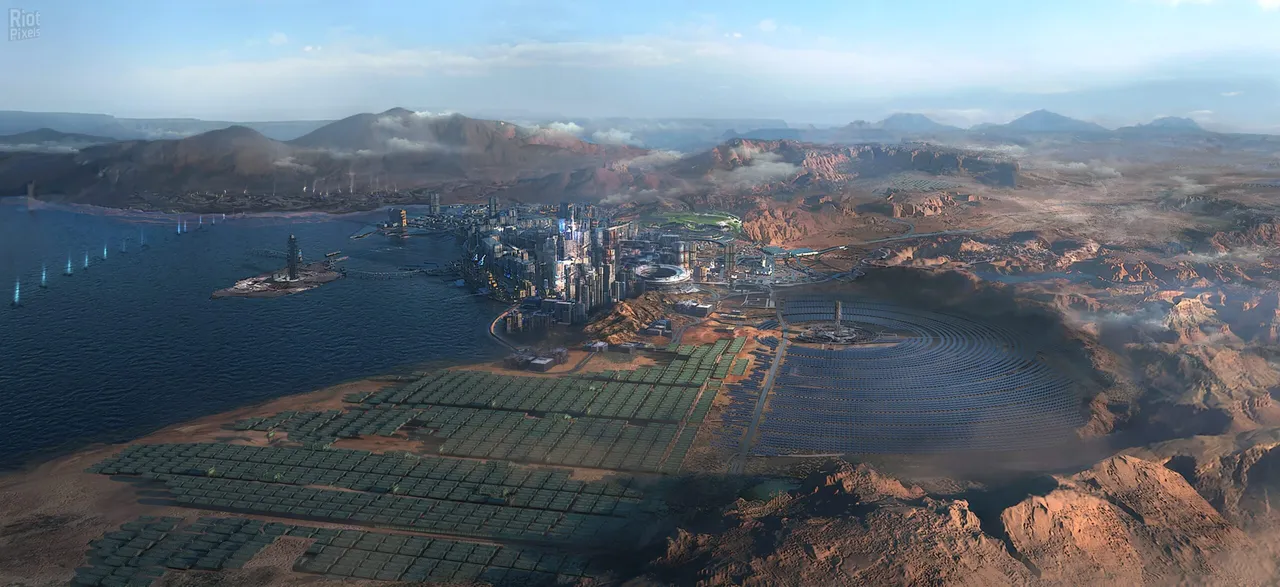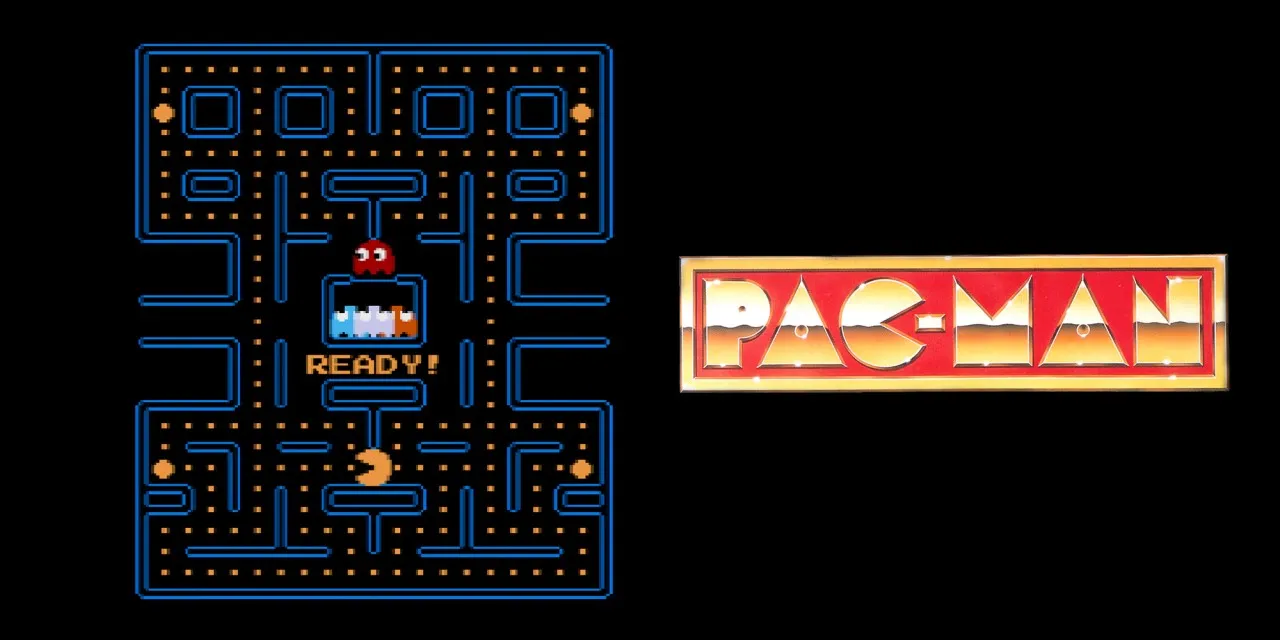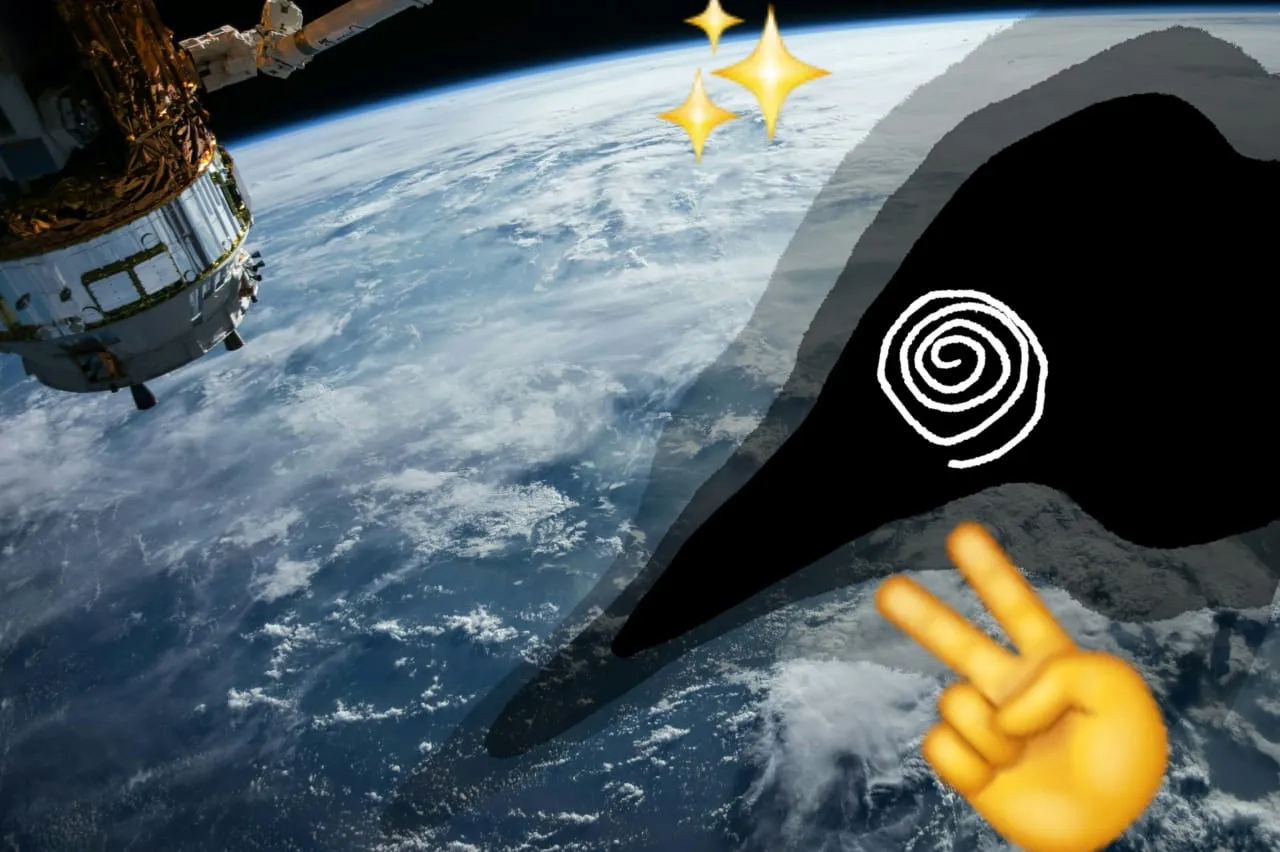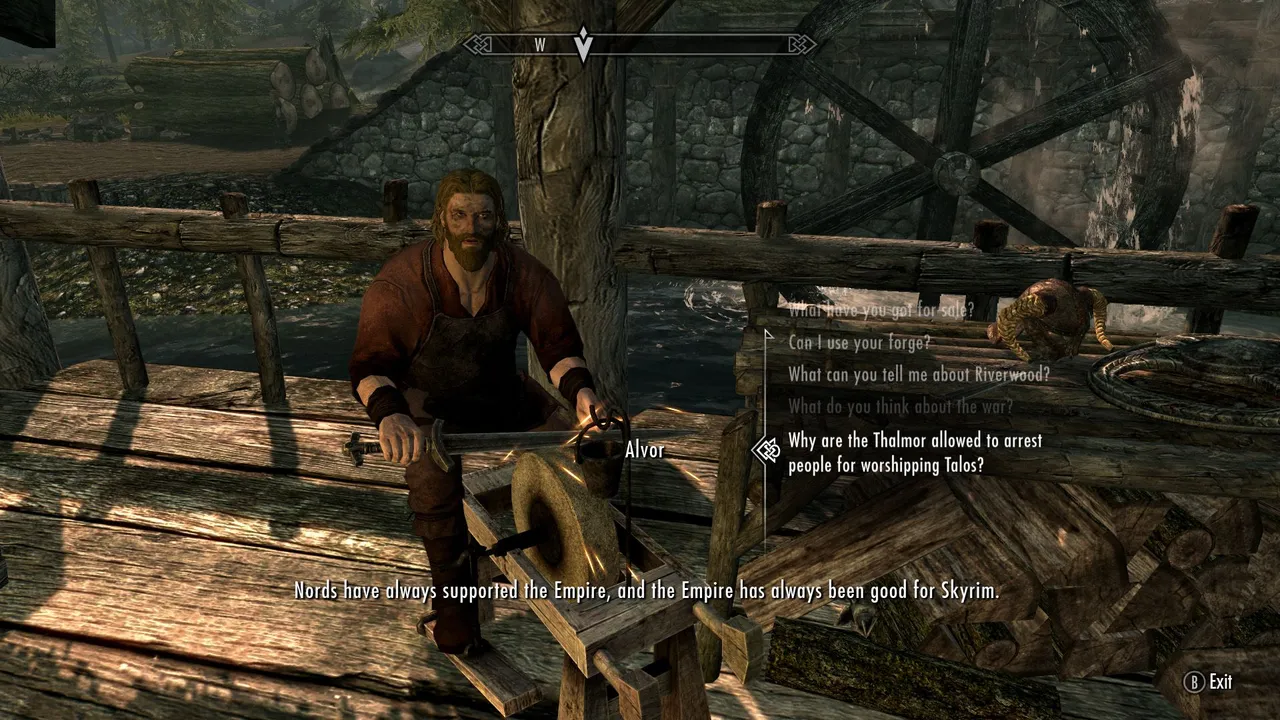Estimating in English...
World size in videogames is usually very limited, even when diving into the open-world or sandbox genre, and that's mostly due to out current computational technology level. This is proof enough to say you don't need an Earth-sized world map in order to make an excellent game, nor is a tiny one an excuse for a horrible game. Detaching this two ideas is important to begin any statement around this fact: videogames with Earth-sized world maps are an inevitable outcome of humanity's technological and artistic evolution.
 Now, if you want a little bit of background on why this post even exists go check out this post by @wirago, very concise, very brief, totally recommended. Basically, Ubisoft's developing software for supporting bigger world sizes, detaching from the limitations of player's hardware level. (image source)
Now, if you want a little bit of background on why this post even exists go check out this post by @wirago, very concise, very brief, totally recommended. Basically, Ubisoft's developing software for supporting bigger world sizes, detaching from the limitations of player's hardware level. (image source)
Back to what I was saying, they'll mostly suck. Don't get me wrong, I find the esoterica and fantasy of a totally developed world enticing at least, but it's so easy to get it so wrong. Let's for the sake of simplicity explain both ends of this developing spectrum and why I think they're not feasible.
First end - Single-themed worlds
This is what a lot of games are developed in since forever and probably will keep on developing in until forever. They're designed for serving the main story or gameplay and nothing more. Don't have side stories, or mini-games, or sneak peeks of a world beyond. They're the heavyweight of limited gameplay.
 Think Pac-Man, simplistic as it gets. There's no reason, no universe, no outcome, just an omnivorous wheel of cheese being hunted down by colorful ghosts (whatever the hell that means). (image source)
Think Pac-Man, simplistic as it gets. There's no reason, no universe, no outcome, just an omnivorous wheel of cheese being hunted down by colorful ghosts (whatever the hell that means). (image source)
This is an OK baseline for a simple game. But then you add futher depth to the world map while sticking to that simplistic vision, salt and pepper to taste. A recipe for boredom. We've already seen that, the big struggle with open-world games is exactly about that, you have a huge space in which you're left to do pretty much the same stuff too many times, or a bunch of dead parts to get lost and frustrated. No fun.
Now imagine this, but a thousand times bigger. No, Ubi, I don't wanna stab and rob a billion templars, and I'm not mystified by the possibility of it.
Second end - Real-world complexity
There are no games like this, because it's ludicrously difficult. The only way of achieving something like this is by assuming we already live in a game. But let's get into the fantasy.
 The vast ocean, the clouds or even the ISS would be only yours to explore and exploit (unless you're thalassophobic, in which case sorry for the nightmare fuel). (image source)
The vast ocean, the clouds or even the ISS would be only yours to explore and exploit (unless you're thalassophobic, in which case sorry for the nightmare fuel). (image source)
We're no longer talking about an Earth-sized world, but about a literal Earth. That does sound enticing, discovering the overwhelmingly infinite options, you can do pretty much anything. But, I mean, the Earth took quite a bit of time to puff up, and human civilization has been for a long-ass time in the oven and it's not even done yet. We definitely would be quicker, but not enough.
The craftsmanship it would require would use up all of the game developing market and still be lacking like 99% of the people needed to do it in a generous century or two of hard work. World map, gameplay, hardware, story, characters, modeling, weather, like... We don't even understand Earth all that well.
The middle - The fair expectations
I actually believe world maps could be absurdly enormous and still work out. Gaming technology has been evolving lightning fast since it was born, and everything says it will keep speeding up. While Ubisoft is not big on quality, I'm sure their competitors won't last long to get up to pace if the software does work out well. This might be the starting point of a full-world genre, as open-world did not so long ago.
 A game that specialized in this is Skyrim (as hilariously faulty as it came out), every character had life of their own, and that's nice detail. (image source)
A game that specialized in this is Skyrim (as hilariously faulty as it came out), every character had life of their own, and that's nice detail. (image source)
Tiny details are all you need to get started, giving life to secondary thing is an fairly old and common practice, doing so to such a large scale would be difficult and time-consuming, but feasible. We might be not so far away to a good full-world game.
Where are we now?
As far as we know, Ubi's the only one on board, but if the project looks good enough, it'll draw big-ass companies' attention and competitiveness will do the rest. Attention from buyers won't something lacking at first, surely, it's very catchy.
To be honest, I do believe it will take a looong time to get it up and running, and some extra to get something actually good out of it. But it'll be so worth it, letting the opportunity go would be sad.
| All images used on this post are my own unless stated otherwise. |
|---|

Estimando en Español...
El tamaño del mundo en videojuegos suele ser muy limitado, incluso cuando se trata del género de mundo abierto o del sandbox, y eso se debe sobre todo a nuestro nivel actual de tecnología computacional. Queda claro entonces que no se necesita un mapa del tamaño de la Tierra para hacer un juego excelente, ni que uno diminuto es excusa para un juego terrible. Separar estas dos ideas es importante para comenzar cualquier declaración en torno a este hecho: los videojuegos con mapas de tamaño planetario son un resultado inevitable de la evolución tecnológica y artística de la humanidad.
 Ahora, para un poco de trasfondo ve a este post de @wirago, breve y conciso, totalmente recomendado, sólo que está inglés. Básicamente, Ubisoft está desarrollando un software para soportar mundos más grandes, desligándose de las limitaciones del nivel de hardware del jugador. (fuente de la imagen)
Ahora, para un poco de trasfondo ve a este post de @wirago, breve y conciso, totalmente recomendado, sólo que está inglés. Básicamente, Ubisoft está desarrollando un software para soportar mundos más grandes, desligándose de las limitaciones del nivel de hardware del jugador. (fuente de la imagen)
Volviendo al punto, la mayoría será una mierda. No me malinterpreten, la esotérica y la fantasía de un mundo totalmente desarrollado me parece como mínimo atractiva, pero es muy fácil cagarla. En aras de la simplicidad, expliquemos los dos extremos de este espectro de desarrollo y por qué creo que no son factibles.
Primer extremo - Mundos monotemáticos
Esto es en lo que muchos juegos se desarrollan desde siempre y probablemente seguirán desarrollándose siempre. Están diseñados para servir a la historia principal o la jugabilidad y nada más. No hay historias secundarias, ni minijuegos, ni sugestiones de un mundo más allá. Son la meca de limitación.
 Por ejemplo Pac-Man, de lo más simplista que hay. No hay un motivo, un universo, un resultado, sólo eres una rueda de queso omnívora, perseguido por fantasmas de colores (pongámosle que eso tiene sentido). (fuente de la imagen)
Por ejemplo Pac-Man, de lo más simplista que hay. No hay un motivo, un universo, un resultado, sólo eres una rueda de queso omnívora, perseguido por fantasmas de colores (pongámosle que eso tiene sentido). (fuente de la imagen)
Esta es una base aceptable para un juego limitado. Pero luego se añade más profundidad al mapa del mundo mientras se mantiene ese simplismo, sal y pimienta al gusto: la receta del aburrimiento. Está más que visto, el gran problema con los juegos de mundo abierto es justamente sobre eso, tienes un espacio enorme en el que te toca hacer prácticamente lo mismo un coñazo de veces, o un montón de partes muertas en las que perderte y frustrarte. Qué ladilla.
Ahora imagina esto, pero mil veces más grande. No, Ubi, no quiero apuñalar y robar a mil millones de templarios, y no me hace puta gracia la posibilidad.
Segundo extremo - La complejidad del mundo real
No existen juegos así, porque es absurdamente difícil. La única manera de conseguir algo así es asumiendo que ya vivimos en un juego, pero vale, entremos en la fantasía.
 Entre el mar, las nubes o más allá, podrías explorar hasta la Estación Espacial Internacional si quisieras (a menos que seas talasofóbico o algo, en cuyo caso perdona el horror). (fuente de la imagen)
Entre el mar, las nubes o más allá, podrías explorar hasta la Estación Espacial Internacional si quisieras (a menos que seas talasofóbico o algo, en cuyo caso perdona el horror). (fuente de la imagen)
Ya no estamos hablando de un mundo del tamaño de la Tierra, sino de literalmente una Tierra. Eso sí que es llamativo, descubrir las opciones abrumadoras e infinitas en las que se puede hacer prácticamente cualquier cosa. Pero a ver, la Tierra tardó burda de tiempo en levantar, y la civilización humana lleva muchísimo tiempo en el horno y todavía no está lista. Definitivamente sería más rápido, pero no lo suficiente.
La artesanía y el trabajo que requiere ocuparía todo el mercado de desarrollo de juegos y aún faltaría como el 99% de la gente necesaria para hacerlo en un largo siglo o dos de trabajo duro. El mapa, la jugabilidad, el hardware, la historia, los personajes, el modelado, el clima, quiero decir... Ni siquiera entendemos tan bien la Tierra.
La mitad - Las expectativas realistas
En realidad, creo que los mapas podrían ser ridículamente enormes y seguir funcionando. La tecnología de los videojuegos ha evolucionado a burda de rápido desde su inicio, y todo indica que seguirá acelerando. Y aunque Ubisoft no se preocupa demasiado por la calidad, sus competidores no tardarán en ponerse al día si el software sale bien. Éste podría ser el punto de partida de una categoría de mundo completo, como lo fue el mundo abierto no hace tanto tiempo.
 Un juego especializado en esto es Skyrim (con su absurdismo se le quiere igual), cada personaje tenía su propia vida, aprecio esos detalles. (fuente de la imagen)
Un juego especializado en esto es Skyrim (con su absurdismo se le quiere igual), cada personaje tenía su propia vida, aprecio esos detalles. (fuente de la imagen)
Los pequeños detalles son todo lo que se necesita para empezar, dar vida a lo secundario es una práctica bastante antigua y común, hacerlo a tal gran escala sería difícil y llevaría mucho tiempo, pero se puede. Quizás no estemos tan lejos de un buen juego de mundo completo.
¿Dónde estamos ahora?
Por lo que sabemos, Ubi es la única gran compañía trabajando en esto, pero si el proyecto parece lo suficientemente bueno, llamará la atención de otras grandes compañías y la competitividad hará el resto. La atención de los compradores no será algo que falte al principio, sin duda es muy atractivo.
Honestamente, creo que se necesitará mucho tiempo para ponerlo en marcha y más todavía para que salga algo realmente bueno, pero merecerá la pena, dejar pasar la oportunidad sería triste.
| Todas las imágenes utilizadas en este post me pertenecen, a menos que establezca lo contrario. |
|---|